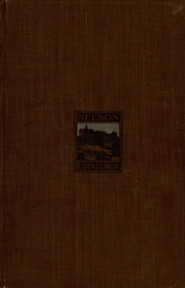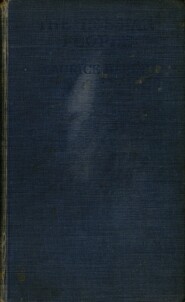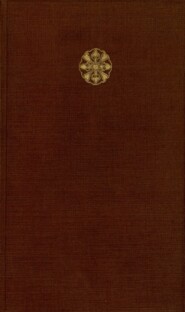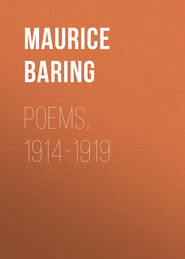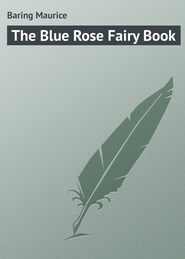По всем вопросам обращайтесь на: info@litportal.ru
(©) 2003-2024.
✖
Overlooked
Настройки чтения
Размер шрифта
Высота строк
Поля
I asked who the hero would be.
"The man who wants to marry her and whom she consents to marry will be a foreigner," he said.
"An Italian?" I asked.
"No," he said, "not an Italian. Not a southerner. A northerner. Possibly a Norwegian. A Norwegian or a Dane. That would be just the kind of person to be attracted by this fairy-tale-looking, in reality, prosaic being."
"And who would the original Fairy Prince be?" I asked.
"He would be an ordinary Englishman. Any of the young men I saw here would do for that. The originality of his character would be in this: that he would look and be considered the type of dog-like fidelity and unalterable constancy, and in reality he would forget all about her directly he met someone else he loved. He would have been quite faithful till then. Faithful for two or three years. Then he would have met someone else: a married woman. Someone out of his reach, and he would have been passionately devoted to her and have forgotten all about the Fairy Princess.
"The Norwegian would be attracted by her very apathy and seeming coldness and aloofness. He would imagine that this would all melt and vanish away at the first kiss. That she would come to life like Galatea. It would be the opposite of Galatea. The first kiss would turn her to stone once more.
"Then being a very nice honest fellow he would be miserable. He would not know what to do. He would be a sailor perhaps, and be called away. That would have to be thought about."
Then we talked of other things. I asked Rudd if he had made Kranitski's acquaintance. He said, Yes, he had. He was quite a pleasant fellow, no brains and very commonplace and rather reactionary in his ideas; not politically, he meant, but intellectually.
He had not got further than Miss Austen and he was taken in by Chesterton. All that was very crude. But he was amiable and good-natured.
I said Princess Kouragine liked him.
"Ah," he said, "that is an interesting type. The French character infected by the Slav microbe.
"What a powerful thing the Slav microbe is; more powerful even than the Irish microbe. Her French common sense and her Latin logic had been stricken by that curious Russian intellectual malaria. She will never get it out of her system."
I asked him if he thought Kranitski had the same malaria.
"It is less noticeable in him," Rudd said, "because he is Russian; there is no contrast to observe, no conflict. He is simply a Slav of a rather conventional type. His Slavness would simply reveal itself in his habits; his incessant cigarette-smoking; his good head for cards – he was an admirable card-player – his facility for playing the piano, and perhaps singing folk-songs – I don't know if he does, but he well might; his good-natured laziness; his social facility; his quick superficiality. There is nothing interesting psychologically there."
I said that I believed his mother was Italian.
Rudd said this was impossible. She might be Polish, but there was evidently no southern strain in him. Although I knew for a fact that Rudd was wrong, I could not contradict him; greatly as I wished to do so I could not bring the words across my lips.
I said he had made Mrs. Lennox's acquaintance.
He said he knew that he had met him in their rooms.
I asked whether he thought Miss Brandon liked him.
Rudd said that Miss Brandon was the same towards everyone. Profoundly indifferent, that is to say. He did not think, he was, in fact, quite certain that there was not a soul at Haréville who raised a ripple of interest on the perfectly level surface of her resigned discontent.
Then we went out into the park and listened to the music.
CHAPTER VI
The day after Rudd dined with me I was summoned by telegram to London. My favourite sister, who is married and whom I seldom see, was seriously ill. She wanted to see me. I started at once for London and found matters better than I expected, but still rather serious. I stayed with my sister nearly a month, by which time she was convalescent. Kennaway insisted on my going back to Haréville to finish my cure.
When I got back, I found all the members of the group to which I had become semi-attached still there, and I made a new acquaintance: Mrs. Summer, who had just come back from the Lakes. I know little about her. I can only guess at her appearance. I know that she is married and that she cannot be very young and that is all. On the other hand, I feel now that I know a great deal about her.
We sat after dinner in the park. She is a friend of Miss Brandon's. We talked of her. Mrs. Summer said:
"The air here has done her such a lot of good."
She meant to say: "She is looking much better than she did when she arrived," but she did not want to talk about looks to me.
I said: "She must get tired of coming here year after year."
Mrs. Summer said that Miss Brandon hated London almost as much.
I said: "You have known her a long time?"
She said: "All her life. Ever since she was tiny."
I asked what her father was like.
"He was very selfish, violent-tempered, and rather original. When he dined out he always took his champagne with him in a pail and in a four-wheeler. He lived in an old house in the south of Ireland. He was not really Irish. He had been a soldier. He played picquet with Jean every evening. He went up to London two months every year – not in the summer. He liked seeing the Christmas pantomime. He was devoted to Jean, but tyrannized over her. He never let her out of his sight.
"When he died he left nothing. The house in Ireland was sold, and the house in London, a house in Bedford Square. I think there were illegitimate children. In Ireland he entertained the neighbours, talked politics, and shouted at his guests, and quarrelled with everyone."
I presumed he was not a Radical. I was right.
I said I supposed Miss Brandon could never escape.
She had been engaged to be married once, but money – the want of it – made the marriage impossible. Even if there had been money she doubted.
"Because of the father?" I said.
"Yes, she would never have left him. She couldn't have left him."
"Did the father like the young man?"
"Yes, he liked him, but regarded him as quite impossible, quite out of the question as a husband."
I said I supposed he would have thought anyone else equally out of the question.
"Of course," she said. "It was pure selfishness – "
I asked what had happened to the young man.
He was in the army, but left it because it was too expensive. He went out to the Colonies – South Africa – as A.D.C. He was there now.
"Still unmarried?" I asked.
Mrs. Summer said he would never marry anyone else. He had never looked at anyone else. He was supposed, at one time, to have liked an Italian lady, but that was all nonsense.
She felt I did not believe this.
"You don't believe me," she said. "But I promise you it's true. He is that kind of man – terribly faithful; faithful and constant. You see, Jean isn't an ordinary girl. If one once loved her it would be difficult to love anyone else. She was just the same when he knew her as she is now."






